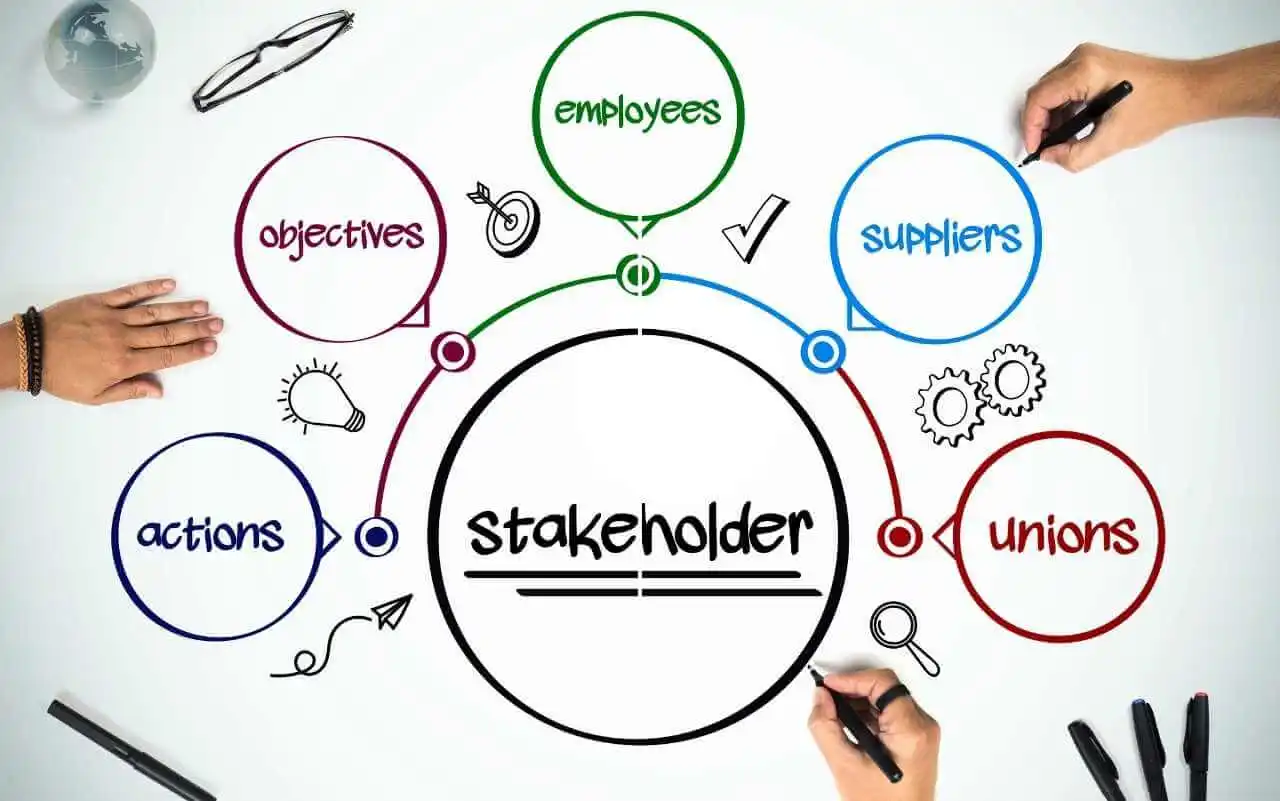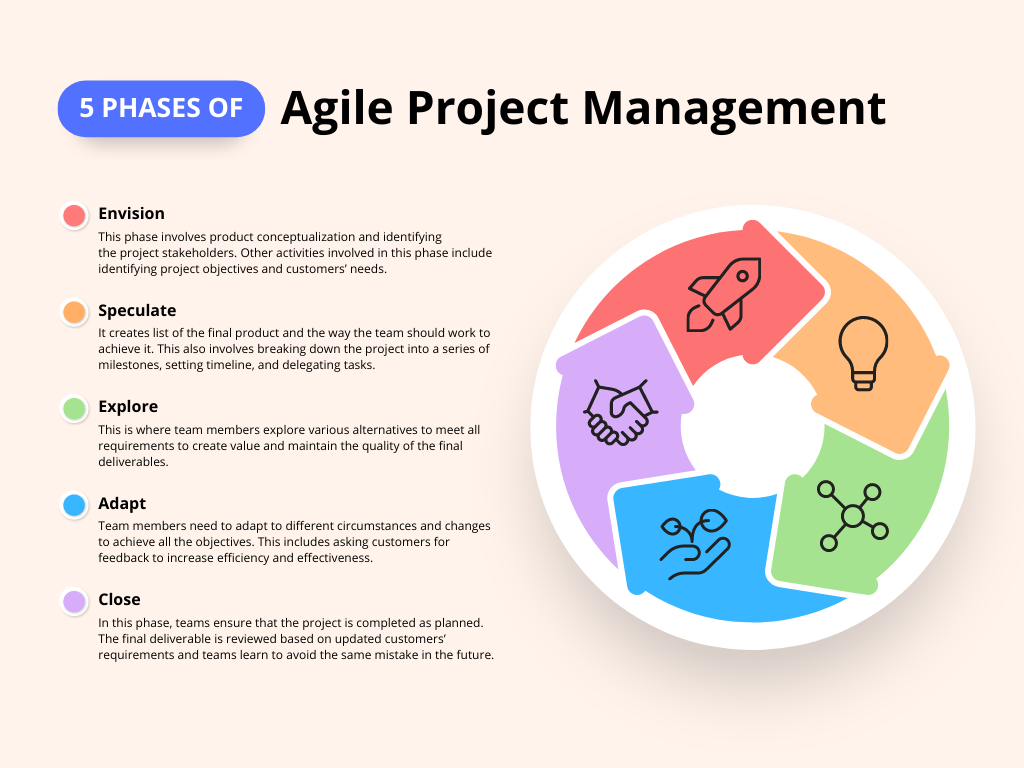Introduction to AI in Project Management
AI in project management is a game-changer. Think of it as a turbo boost for the already strong project management engine. It tackles the complex and sometimes mundane aspects, transforming them into more intelligent, quicker, and more effective operations. Picture a helper able to forecast project outcomes, optimize resource distribution, and spot risks before they escalate. That’s what AI brings to the table. It’s not about sidelining humans but rather amplifying their decision-making prowess. AI automates monotonous tasks and digs deep into data for insights, allowing project managers to zero in on strategy and creativity. It’s a smarter way of working, not necessarily harder. With AI, projects are not just done quicker but also better, with less chance of stumbling.
The Role of AI in Enhancing Project Planning
AI is making a bold entrance into project management, transforming how we work. It’s more than just automating tasks—it’s about enhancing planning and execution with intelligence. Wondering how it ups the game in project planning? Here’s the deal: AI tools dive deep into data, spotting trends and patterns that humans might miss. This leads to sharper insights and more precise planning. Plus, AI never tires or misses a detail, capturing every piece of information in the planning stage.
AI also introduces predictive analysis into project management. Imagine being able to predict potential bottlenecks before they occur. This is what AI brings to the table. It can analyze past project data and current progress to forecast future risks and opportunities, allowing managers to make proactive decisions.
Collaboration is another aspect where AI shines. It can automate the distribution of tasks based on team members’ strengths and availability, ensuring that the workload is balanced and deadlines are met. By handling routine task allocations, AI frees up project managers to focus on more critical aspects of project planning and team management.
Moreover, AI-driven tools can provide real-time updates and adjust timelines dynamically, keeping projects on track and stakeholders informed. This level of adaptability and responsiveness in planning was unthinkable before the advent of AI in project management.
In summary, AI’s role in enhancing project planning is clear. It brings precision, foresight, and efficiency, making projects more successful and less stressful for everyone involved. The future of project planning is undoubtedly leaning heavily on AI technology.
Automating Tasks with AI for Increased Efficiency
AI in project management isn’t just a trend; it’s a game changer. It takes on repetitive tasks, letting project managers focus on strategy and innovation. Think scheduling, emailing, and reporting—AI tools can handle these with ease. This means no more getting bogged down in admin work. Instead, project teams can direct their energy towards creative problem-solving and high-impact activities. Moreover, AI can analyze project data faster than any human, spotting risks or opportunities early. This isn’t about replacing people but enhancing their work. By automating mundane tasks, project teams become more efficient, agile, and prepared to tackle challenges head-on.
AI-driven Analytics for Better Decision Making
AI analytics revolutionize project management decision-making. This tech filters through heaps of data swiftly, catching trends and insights easily missed by humans. Imagine a super-intelligent assistant that’s always on the job. It reviews past projects, gauges current workloads, and forecasts outcomes with impressive accuracy. Thus, project managers rely on data, not just hunches. Say, AI flags a project falling behind or over budget, prompting fast fixes. This isn’t about sidelining human insight but boosting it. With AI, teams can sort tasks better, use resources wisely, and spot potential issues early. The takeaway? AI analytics lead to smarter, data-driven choices for project success.
Real-time Monitoring and Control with AI Tools
AI tools in project management have revolutionized how we track and control projects. With real-time monitoring, project managers no longer need to wait for weekly reports or team updates. Instead, AI algorithms analyze data as it comes in, allowing for immediate adjustments. Think of it as having a diligent assistant who never sleeps, continuously scanning project metrics for any deviations from the plan. This capability means potential issues can be identified and addressed much quicker than before, reducing delays and keeping projects on track. Importantly, this real-time oversight isn’t just about solving problems faster; it’s also about identifying trends that could lead to opportunities for efficiency or innovation. By leveraging the power of AI for monitoring and control, project managers can ensure their projects are not just completed on time and within budget but also optimized for the best possible outcomes.
Risk Management and Mitigation through AI
AI transforms risk management in project management into a precise science rather than a guessing game. Using AI, project managers can predict potential risks by analyzing vast amounts of data swiftly. This means they can spot issues before they become major problems. AI tools do this by learning from past projects, identifying patterns, and foreseeing problems that could disrupt a project’s timeline, budget, or quality. For instance, if a project is similar to past ones that faced delays due to supplier issues, AI can flag this early on. This enables teams to pivot or prepare better, reducing downtime and costs. Moreover, AI aids in formulating effective risk mitigation strategies by offering insights and data-driven recommendations. Simply put, AI makes risk management smarter, faster, and more reliable, giving project teams a significant advantage.
Improving Team Collaboration with AI Integration
AI integration in project management tools can take team collaboration to new heights. Let’s break it down. First off, AI software can analyze vast amounts of data quickly to identify patterns or problems. This means it can suggest the best times for team meetings, predict project bottlenecks, and even recommend task assignments based on past performance. Think about it—less time spent on scheduling and more on doing.
Moreover, AI tools can facilitate better communication. They can translate languages in real time, making it easier for global teams to work together. They can also prioritize emails and messages, making sure urgent issues are dealt with promptly. It’s like having a super-efficient assistant that helps keep everyone on the same page, regardless of time zones or workloads.
Lastly, AI fosters a learning environment. It can track project outcomes and give feedback on what worked well and what didn’t. This way, teams can continuously improve their strategies and work more effectively together. With AI, it’s not just about working harder but smarter.
So, integrating AI into project management isn’t just a fancy add-on. It’s a game-changer for team collaboration, enabling more efficient, effective, and adaptable work processes.
AI in Resource Allocation and Budgeting
AI changes the game in resource allocation and budgeting, making it easier for project managers to match tasks with the right resources efficiently. By analyzing project data, AI can predict the best allocation of people, money, and time, ensuring projects are not just completed but done so in the most cost-effective and timely manner. This means less guesswork and more precision in handling project budgets and resources.
For instance, AI software can sift through past project data to identify trends and predict future needs. This capability allows it to recommend where to cut costs without sacrificing quality or to allocate more budget to areas that will increase project value. Plus, it suggests the most suitable team members for each task based on their skills and previous performance, maximizing productivity and satisfaction.
So, why is this important? Because with AI, businesses can make smarter decisions faster. Misallocation of resources and budget overruns are among the top challenges in project management. AI steps in to tackle these issues head-on, leading to not just more successful projects but also saving companies significant amounts of money in the long run. In essence, embracing AI in resource allocation and budgeting is not just about keeping up with technology—it’s about staying ahead in the competitive world of project management.
Future Trends: AI in Project Management
AI is not just a buzzword anymore; it’s transforming how we manage projects. In the near future, AI is set to make project management smarter, faster, and more cost-effective. Here are the key trends to watch: predictive analytics will anticipate project risks and opportunities, making it easier to plan accurately. Automated task assignments will ensure the right people are working on the right tasks, boosting efficiency. Then, personalized project insights will tailor recommendations to improve performance. What’s really exciting is the integration of AI with other technologies like IoT and blockchain, opening up new possibilities for innovation. And don’t forget that voice-activated project management tools will make multitasking a breeze. voice-activated project management tools AI is not just changing the game; it’s creating a whole new playground.
Conclusion: Embracing AI for Project Success
In wrapping up, it’s crystal clear that AI is no longer just a futuristic concept but a present-day tool that can significantly drive project success. AI empowers project managers and teams to focus on the core aspects of innovation and strategy by automating routine tasks, offering insights through data analysis, and enhancing decision-making processes. Adopting AI in project management isn’t just about keeping up with technology trends; it’s about setting yourself apart, being more productive, and delivering with precision and efficiency. The key takeaway is simple: Those who embrace AI in their project workflows are poised to lead in efficiency and innovation, setting a benchmark in their respective industries. So, it’s not a question of whether you should integrate AI tools into your project management practices but rather how quickly you can do so to reap the benefits and stay ahead in the game.








